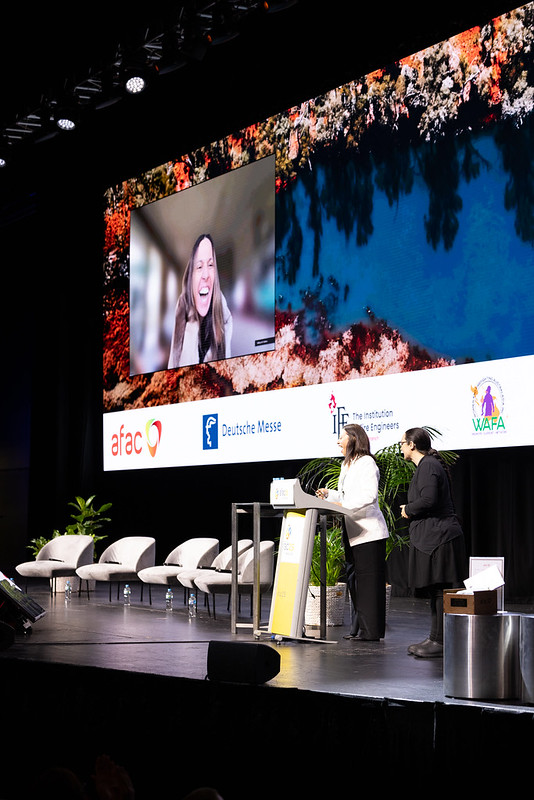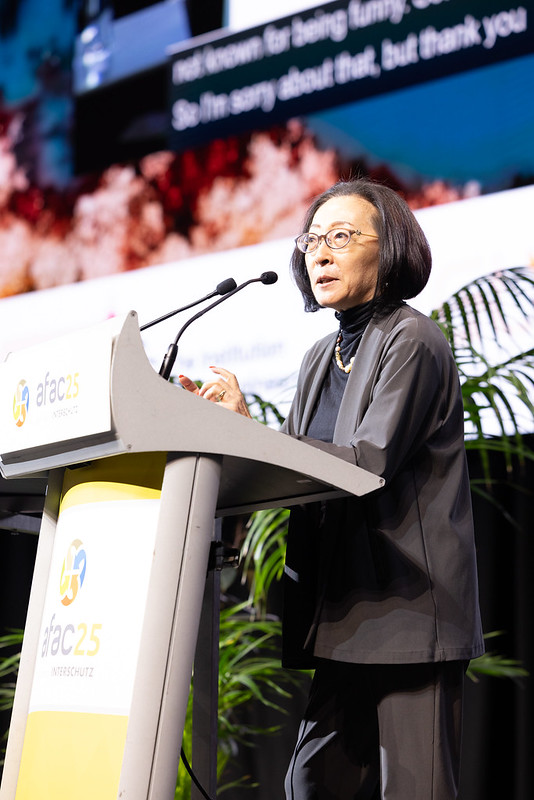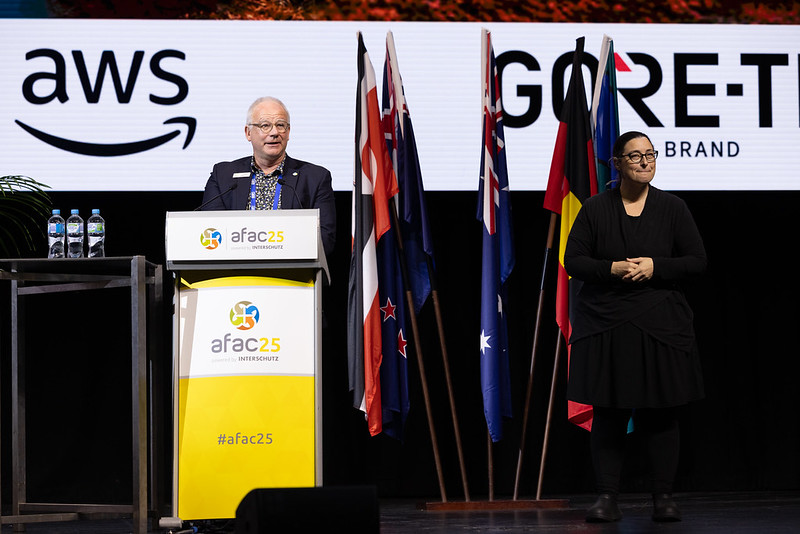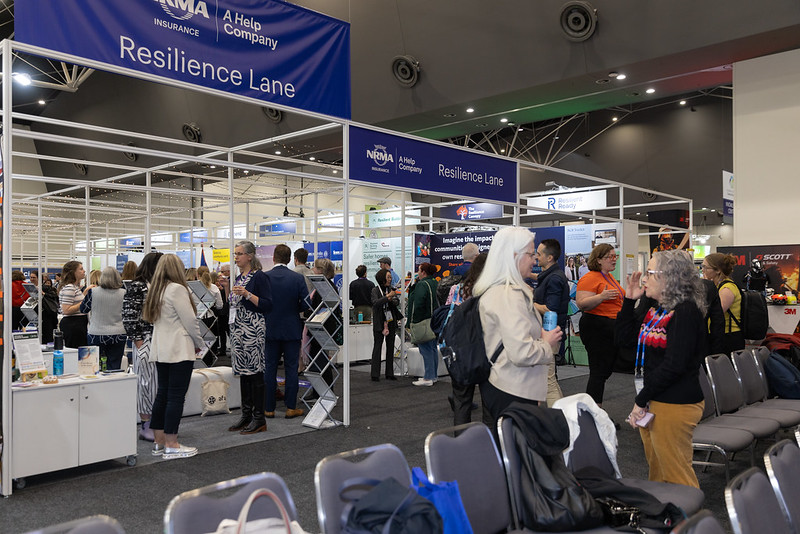Embracing radical transformation at ADRC25
The 2025 Australian Disaster Resilience Conference (ADRC) welcomed over 300 delegates to Perth during the last week of August. ADRC has become an established annual event that brings together delegates from many sectors to share research, knowledge and practice, and provide a forum for people and organisations to network, connect, and collaborate to reduce disaster risk and build resilience.
The conference was opened by Ingrid Ngoorlak Cumming, a proud Whadjuk Balardong Noongar woman, who spoke about the value of listening and the importance of taking time to build trust—over 7 cups of tea—before getting down to business. Ingrid reminded us all that genuine connection and understanding are the foundations of effective collaboration.

Source: AFAC
Following Ingrid, Mami Mizutori, Former Head of the United Nations Office for Disaster Risk Reduction, urged the sector to step up investment in prevention. She highlighted that the impact of disasters on people and infrastructure continues to rise, and we must accelerate our efforts if we are to achieve the targets set by the Sendai Framework for Disaster Risk Reduction.

Source: AFAC
This year’s conference theme ‘Embracing Radical Transformation,’ was a call to change systems from the ground up in response to the urgent and compounding crises we face. The AIDR team worked closely with AFAC’s Communications and Events team, Hannover Fairs Australia, and the dedicated ADRC25 Program Committee, to curate a diverse and inspiring program. Visit AIDR’s Knowledge Hub to access ADRC25 proceedings, and download or view the delegate handbook..
Over the 2-day conference, delegates chose between 2 streams of oral presentations and panel presentations, covering topics such as culturally informed community recovery, systems thinking, policy, diversity, equity and inclusion, young people, local government collaboration, heat vulnerability, and technology for resilience. The conference concluded with inspiring sessions on connection with nature and a workshop drawing on Indigenous Māori knowledge to navigate disaster recovery.

Source: AFAC
AIDR hosted the workshop ‘Thinking Systemically for disaster resilience’ as part of the conference’s Professional Development Program. Facilitators Dr Adriana Keating, Dr Zoe D'Arcy and Paul Ryan gave delegates much to think about including how we are now in the Anthropocene era which is an era of profound ecological change, that climate change is a major driver of systemic vulnerability, and that we are experiencing profound uncertainty due to significant complexity, randomness and variability. This highlighted the importance of shifting our perspective to understand vulnerability as a symptom of systemic failure rather than as an individual condition.
Additional to the conference stream offerings, ADRC25 provided opportunities for delegates and speakers to connect at the Networking Function in Resilience Lane on Wednesday evening and the Gala Dinner. Back for its third year, Resilience Lane was once again the bustling community-centred heart of the exhibition hall where 21 community organisations showcased their programs and shared stories about community resilience. AIDR hopes this opportunity saw many pebbles cast into the pond to create outward ripples of engagement, sharing and collaboration. AIDR would like to thank NRMA for their generous sponsorship of Resilience Lane.

Source: AFAC
Heartfelt thanks to the many presenters, panellists, facilitators, moderators, session chairs, Resilience Lane exhibitors, volunteers, delegates, and sponsors who contributed to making ADRC25 so wonderful. Thank you to our AIDR, AFAC and HFA colleagues who pull the levers and help make this event run so seamlessly.
The abstract submission process for ADRC26 will open in November 2025, so keep an eye out for further information.
See you in Melbourne for ADRC26.


